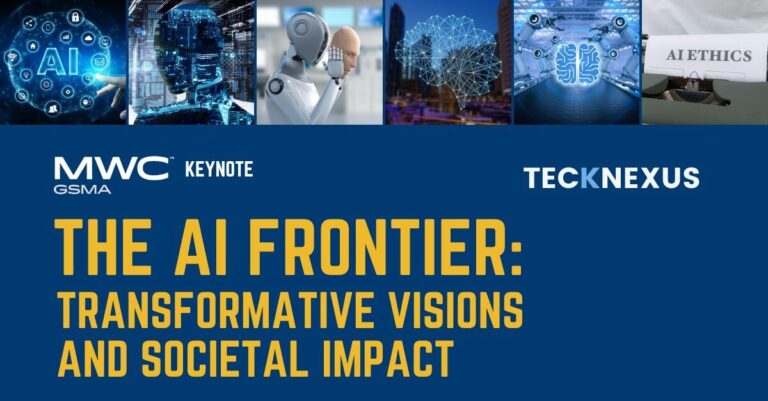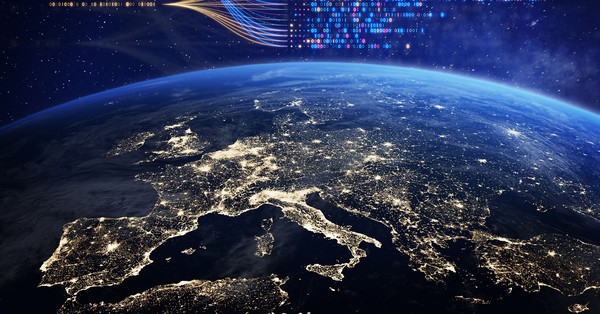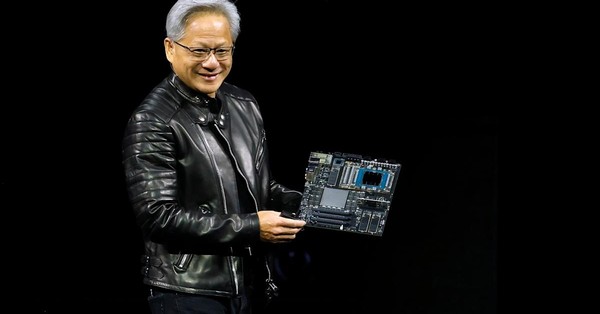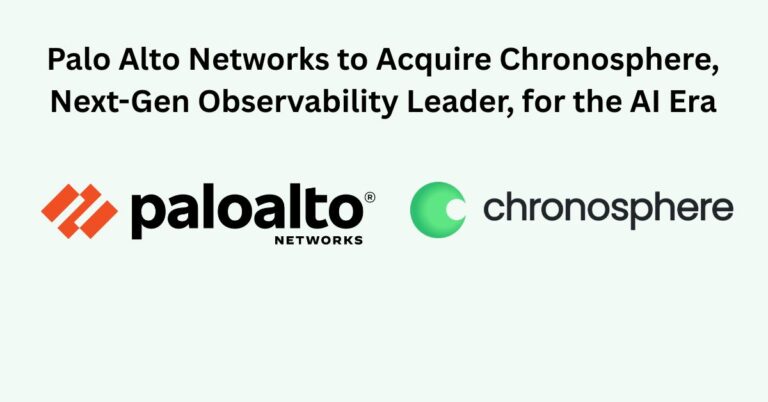How AI is Reshaping Society & Industry: A Global Perspective
Artificial Intelligence (AI) is no longer a futuristic concept—it is the defining force of the digital revolution. From automating business operations to enhancing healthcare, education, and governance, AI is at the heart of a global transformation that is changing the way we live, work, and interact. However, as AI becomes more sophisticated, it raises fundamental ethical, societal, and economic concerns. Questions about AI’s impact on jobs, privacy, security, and digital equity remain at the forefront of discussion.
At MWC 2025, the keynote session “The AI Frontier: Transformative Visions & Societal Impact” will bring together global AI pioneers, industry leaders, and policymakers to explore AI’s evolving role in society and business, addressing both its promises and perils. These discussions will shape the trajectory of AI innovation and determine how AI can serve humanity in an ethical, inclusive, and sustainable manner.
Virtual Fireside: When We Merge With AI
Speaker: Ray Kurzweil, Visionary & Author
Moderator: Jeremy Kahn, AI Editor, Fortune
Renowned futurist Ray Kurzweil will explore the next stage of human evolution—our impending fusion with AI. He will discuss themes from his new book, When We Merge With AI, delving into:
- The progression of AI-human augmentation.
- The ethical dilemmas of cognitive enhancement.
- The implications of AI achieving self-awareness.
- How AI will redefine intelligence, consciousness, and identity.
Kurzweil’s discussion will challenge conventional notions of what it means to be human in an AI-driven world, sparking debate about the benefits and potential dangers of a hyper-connected future.
How AI is Transforming Business, Healthcare & Everyday Life
AI is no longer a futuristic concept—it is the defining force of the digital revolution. From automating business operations to enhancing healthcare, education, and governance, AI is at the heart of a global transformation that is changing the way we live, work, and interact.
As AI becomes more sophisticated, it is moving beyond simple automation and entering a new era of augmentation, where human intelligence is increasingly complemented, enhanced, and even challenged by machine intelligence. However, as AI systems become more powerful and autonomous, they also raise fundamental ethical, societal, and economic concerns. Questions about AI’s impact on jobs, privacy, security, and digital equity remain at the forefront of discussion.
At MWC 2025, the keynote session “The AI Frontier: Transformative Visions & Societal Impact” will bring together global AI pioneers, industry leaders, and policymakers to explore AI’s evolving role in society and business, addressing both its promises and perils. The session will cover AI’s integration into everyday life, its influence on the future of work, and its role in driving digital inclusion and ethical governance. These discussions will shape the trajectory of AI innovation and determine how AI can serve humanity in an ethical, inclusive, and sustainable manner.
The Business Transformation: AI as the Ultimate Disruptor
AI is revolutionizing business strategies, operational models, and competitive landscapes across industries. Companies are leveraging AI to enhance productivity, improve decision-making, and unlock new business models. The rapid rise of Generative AI, AI-driven analytics, and automation is empowering organizations to optimize their workflows, predict trends, and make data-driven decisions at an unprecedented scale.
1. AI in Business and Industry
From manufacturing to finance, retail, and logistics, AI is streamlining operations and increasing efficiency in ways that were previously unimaginable.
- Manufacturing & Automation: AI-driven robotics and predictive maintenance are revolutionizing the production process, reducing downtime, and improving quality control.
- Financial Services: AI is detecting fraudulent transactions, optimizing investment strategies, and personalizing financial services for consumers.
- Retail & E-Commerce: AI-powered recommendation engines are enhancing customer experiences, predicting demand, and improving inventory management.
- Supply Chain & Logistics: AI is reducing inefficiencies by optimizing routing, predicting supply chain disruptions, and enabling real-time tracking.
- Marketing & Advertising: AI is automating content generation, personalizing customer interactions, and optimizing advertising campaigns.
By integrating AI into core business functions, companies are boosting innovation, reducing operational costs, and gaining a competitive edge in the digital economy.
The Societal Impact: AI in Everyday Life
AI’s impact extends far beyond business—it is fundamentally altering how we live, learn, and engage with the world. From smart cities to personalized healthcare and digital governance, AI is becoming an essential part of society’s fabric.
1. AI in Healthcare: Enhancing Medical Innovation and Patient Care
The healthcare industry is undergoing a data-driven revolution, with AI playing a critical role in early disease detection, precision medicine, and patient care optimization.
- Medical Imaging & Diagnostics: AI-powered image recognition tools are detecting diseases like cancer and cardiovascular conditions with higher accuracy than human doctors.
- Drug Discovery & Development: AI is accelerating drug discovery by analyzing billions of molecular compounds and predicting their effectiveness.
- Personalized Medicine: AI-driven genomics is tailoring treatments based on individual genetic profiles, improving patient outcomes.
- Virtual Health Assistants & Chatbots: AI chatbots are providing 24/7 virtual consultations, reducing hospital workloads, and improving patient engagement.
With these advancements, AI is not replacing doctors, but augmenting medical professionals to improve accuracy, efficiency, and access to healthcare.
2. AI in Education: Personalizing Learning and Upskilling the Workforce
AI is redefining education by creating personalized learning experiences, automating administrative tasks, and helping educators deliver more effective teaching methods.
- AI-Powered Tutoring Systems: Platforms like adaptive learning AI adjust content based on individual student progress, ensuring customized education paths.
- Automated Grading & Administrative Efficiency: AI tools are reducing administrative burdens, allowing teachers to focus on student engagement.
- Skill Development & Workforce Training: AI-driven training programs are helping workers reskill, preparing them for AI-driven economies.
As AI continues to reshape knowledge acquisition, the focus must be on bridging digital divides and ensuring equitable access to AI-powered education.
3. AI in Governance: Smart Cities and Policy-Making
Governments worldwide are integrating AI into public services, law enforcement, and smart city development to enhance efficiency and citizen engagement.
- Smart City Infrastructure: AI is optimizing urban planning, traffic flow, energy consumption, and public safety.
- Predictive Policing & Law Enforcement: AI-driven crime analytics are being used for crime prevention and risk assessment, though concerns about bias and civil liberties remain.
- AI-Powered Public Services: Governments are using AI chatbots and automation to streamline citizen services, from tax filings to social security applications.
While AI enhances governance and public services, ethical concerns surrounding privacy, bias, and government surveillance must be addressed.
Challenges and Ethical Considerations: The Dual-Edged Sword of AI
While AI presents tremendous opportunities, it also raises significant challenges that society must address.
1. AI Bias and Ethical AI Development
AI models are only as unbiased as the data they are trained on. There is increasing scrutiny on:
- Algorithmic bias, which can lead to discriminatory hiring, lending, and policing practices.
- Fair AI governance to ensure AI promotes equality rather than reinforcing societal inequalities.
2. The Future of Work: AI as Job Creator or Destroyer?
AI-driven automation is expected to eliminate repetitive jobs but also create new opportunities. Key concerns include:
- Job displacement vs. job creation—which industries will be most affected?
- The need for lifelong learning to adapt to AI-driven economies.
- Human-AI collaboration to ensure AI augments rather than replaces human workers.
3. AI Governance and Regulation
As AI grows more powerful, governments and organizations must establish ethical frameworks for:
- Regulating AI safety and accountability.
- Preventing AI misuse in surveillance, warfare, and deepfake technology.
- Ensuring responsible AI deployment that prioritizes human welfare.
With legislation like the EU AI Act and global AI policy frameworks, efforts are being made to ensure AI remains aligned with societal values.
Responsible AI: Ensuring AI Benefits Society & Business
As AI continues to reshape business, society, and governance, we stand at a crossroads: Will AI be a force for empowerment or inequality? A tool for progress or a source of disruption?
The discussions at MWC 2025’s AI Frontier Keynote will serve as a catalyst for shaping AI’s future in an ethical, inclusive, and sustainable way. Industry leaders, researchers, and policymakers must collaborate to maximize AI’s benefits while mitigating risks, ensuring that AI serves as a partner in human progress rather than a disruptor.
The future of AI is not predetermined—it is shaped by the choices we make today. The question is: How will we harness AI’s power responsibly for a better tomorrow?
Panel Discussion: Known Knowns and Unknown Unknowns – How Will AI Shape Society?
Speakers:
- Vilas Dhar, President, Patrick J. McGovern Foundation
- Alessandra Sala, Senior Director of AI & Data Science, Shutterstock
Moderator: Karen Tso, CNBC Anchor
This panel will examine:
- Regulating AI and ensuring ethical deployment.
- The role of AI in economic restructuring—job creation vs. displacement.
- AI-driven misinformation and digital trust.
- The convergence of AI, automation, and human oversight. The discussion will highlight both the opportunities and “unknown unknowns” of AI’s development, urging policymakers and business leaders to navigate AI’s rise with responsibility.
The Future of AI: AGI, Open-Source Innovation & AI Ethics
1. Artificial General Intelligence (AGI) and the Future of Work
While today’s AI excels in narrow tasks, the goal of AGI—AI that can perform any intellectual task as well as or better than a human—remains a defining challenge. Leaders in AI research suggest that AGI will transform employment and business models in profound ways:
- AI as a collaborator, not a replacement—augmenting human work rather than replacing it entirely.
- The shift to AI-driven economies, where automation enables new forms of value creation.
- The need for lifelong learning, as AI necessitates constant skill adaptation.
2. Open-Source vs. Proprietary AI: The Innovation Debate
The tension between open-source AI (e.g., Meta’s LLaMA) and proprietary AI (e.g., OpenAI, Google DeepMind) is shaping AI development. Open AI models encourage innovation, transparency, and accessibility, while closed models promise higher security, control, and monetization potential.
This debate has profound implications for:
- Who controls AI innovation—corporations, governments, or the public.
- Balancing innovation with safety—how open AI impacts security risks.
- Ensuring responsible AI governance in an era of rapid development.
3. AI in Scientific Discovery and Problem-Solving
AI is now functioning as a co-scientist, accelerating breakthroughs in medicine, physics, and environmental research. Emerging applications include:
- AI-powered drug discovery, reducing time and cost in pharmaceutical R&D.
- Quantum computing + AI, unlocking solutions to problems currently beyond human reach.
- AI-driven climate modeling, predicting extreme weather and aiding sustainability efforts.
4. The Infrastructure of AI Innovation
Behind the AI boom is an unprecedented investment in compute infrastructure—data centers, cloud computing, and AI chips. Microsoft, Google, and Amazon are pouring billions into AI supercomputing, akin to the railroads and internet backbones that fueled past technological revolutions. Key questions include:
- How can AI infrastructure be made more sustainable?
- Will AI compute power become centralized among a few tech giants?
- How do governments ensure equitable AI access globally?
5. AI Agents and Autonomous Systems
AI is evolving from passive tools to intelligent agents capable of independent action. From self-driving cars to AI assistants that manage entire workflows, the next wave of AI will feature:
- Custom AI agents tailored to individual needs.
- Autonomous decision-making, where AI independently optimizes processes.
- AI in robotics, where humanoid AI assistants become part of daily life.
6. Governance, Regulation, and AI Safety
As AI becomes more powerful and autonomous, questions of control and accountability take center stage. The EU’s AI Act and the US’s AI governance initiatives set the stage for:
- AI safety regulations—mitigating risks of rogue AI behavior.
- Fair and unbiased AI models—preventing algorithmic discrimination.
- Global AI standards—ensuring consistent ethical AI across borders.
AI’s Ethical and Existential Questions
As AI approaches human-like cognitive abilities, philosophical and ethical concerns intensify:
- What rights, if any, should AI have?
- How do we ensure AI remains aligned with human values?
- Could AI one day surpass human control?
Prominent AI leaders, including Elon Musk, Sam Altman, and Geoffrey Hinton, warn of the existential risks of AI, while others believe AI alignment strategies will prevent unintended consequences.
Conclusion: Navigating the AI Revolution
MWC 2025’s Keynote 5: The AI Frontier sets the stage for a critical, future-defining conversation—not just about AI’s technical capabilities, but its societal, economic, and ethical ramifications. As AI rapidly integrates into every aspect of our lives, the challenge for governments, businesses, and individuals is to ensure it enhances humanity rather than diminishes it.
The next decade will define how we shape AI and, in turn, how AI shapes us. The time to engage, question, and steer AI development responsibly is now.
Known Knowns and Unknown Unknowns – How Will AI Shape Society?
Artificial Intelligence (AI) is one of the most transformative forces of the 21st century, reshaping societies in ways that were once only imagined in science fiction. From automating industries and enhancing decision-making to revolutionizing healthcare and governance, AI is already an integral part of our daily lives. However, its rapid evolution presents both predictable challenges and unforeseen disruptions—what former U.S. Secretary of Defense Donald Rumsfeld famously termed the “known knowns” and “unknown unknowns.”
At MWC 2025, the panel discussion “Known Knowns and Unknown Unknowns – How Will AI Shape Society?” brings together leading experts to explore both what we know AI will change and what remains uncertain. Moderated by Karen Tso (CNBC Anchor) and featuring Vilas Dhar (Patrick J McGovern Foundation President) and Alessandra Sala (Shutterstock’s Senior Director of AI & Data Science), this discussion will address the predictable transformations of AI, the unforeseen challenges, and the moral, economic, and policy considerations that must be addressed to ensure AI benefits all of society.
The Known Knowns: What We Expect AI to Change
AI is already delivering tangible advancements across various sectors, from education and healthcare to finance, governance, and cybersecurity. These are the “known knowns”—areas where we have clear expectations about AI’s trajectory and impact.
1. AI and the Future of Work: Automation, Augmentation, and Employment Shifts
AI’s impact on the workforce is one of the most predictable and widely debated consequences of its rise. The automation of repetitive, rule-based tasks will continue to displace certain jobs, while AI-driven augmentation will create new roles and industries.
-
Industries Most Affected by Automation:
- Manufacturing and Logistics: AI-powered robots and predictive maintenance are streamlining supply chains and assembly lines.
- Customer Service & Retail: Chatbots and AI-driven virtual assistants are replacing human representatives.
- Finance & Accounting: AI is automating fraud detection, financial analysis, and risk assessment.
- Healthcare & Diagnostics: AI-driven imaging and diagnostics are assisting doctors in detecting diseases earlier and more accurately.
-
New Jobs & Opportunities Created by AI:
- AI Model Trainers & Ethics Officers to ensure fairness and transparency in AI decision-making.
- Cybersecurity Specialists to mitigate AI-driven cyber threats and data breaches.
- AI-Augmented Creativity & Design Roles where human ingenuity is enhanced by AI-generated art, music, and writing.
- AI-Driven Education & Workforce Training to equip future workers with the necessary AI-related skills.
The question remains: Will AI create more jobs than it eliminates? The answer depends on governments and businesses investing in reskilling programs and creating a balanced AI-driven economy.
2. AI and Ethics: Bias, Privacy, and Accountability
As AI becomes more embedded in decision-making, ethical challenges arise regarding algorithmic bias, data privacy, and accountability.
- Bias in AI Models: AI systems inherit biases from the data they are trained on, which can lead to discriminatory hiring, financial, and judicial decisions.
- Data Privacy Concerns: AI relies on large-scale data collection, raising concerns over how personal information is stored, used, and protected.
- AI Decision-Making & Accountability: When AI systems make mistakes (e.g., self-driving car accidents or incorrect medical diagnoses), who is responsible—the developer, the user, or the company?
Governments and corporations are addressing these issues through AI regulation, such as the EU AI Act and industry-wide AI ethics frameworks. However, striking a balance between innovation and ethical responsibility remains a key challenge.
3. AI in Governance and Policy-Making
Governments worldwide are leveraging AI to enhance public services, improve law enforcement, and create more efficient governance systems.
- Smart Cities: AI is optimizing traffic flow, waste management, and energy consumption, making urban living more sustainable.
- Predictive Policing: Law enforcement agencies use AI for crime forecasting and facial recognition, though concerns about privacy and bias remain.
- AI-Assisted Policy-Making: Governments are deploying AI to analyze economic trends, predict crises, and streamline bureaucratic processes.
The challenge? Preventing AI from being used as a tool for surveillance and social control, ensuring democratic oversight and transparency in government AI usage.
The Unknown Unknowns: Unpredictable AI Disruptions and Challenges
Despite careful planning and research, many aspects of AI’s future remain uncertain. These “unknown unknowns” are the unexpected ways AI might reshape society, governance, security, and even human identity.
1. The Rise of Artificial General Intelligence (AGI) and Superintelligent AI
Current AI models operate within specific domains (e.g., chatbots, image recognition). But researchers are working toward Artificial General Intelligence (AGI)—AI capable of human-like reasoning, learning, and problem-solving across all fields.
- Unforeseen Economic Shifts: What happens when AI is not just a tool but an independent problem-solver? Will corporations or nations control AGI development?
- Power Concentration Risks: If AGI is controlled by a small number of entities, could it exacerbate economic inequality and geopolitical power struggles?
- AI Rights and Sentience: If AI systems achieve self-awareness, should they be granted rights? How do we define AI personhood?
These are highly theoretical questions today, but they could become urgent policy concerns within the next few decades.
2. The Weaponization of AI and Cybersecurity Threats
As AI becomes more powerful, it could be weaponized in ways we cannot yet anticipate. The risks include:
- AI-Powered Cyber Attacks: Malicious actors could deploy AI to create undetectable malware or manipulate financial markets.
- Autonomous Warfare: AI-powered autonomous weapons could be used in combat without human decision-making oversight, leading to unregulated AI-driven conflicts.
- Deepfake Disinformation & Election Tampering: AI-generated fake videos and voices could be used to manipulate public opinion and disrupt democratic institutions.
To prevent AI from becoming a threat to global stability, international cooperation is needed to develop AI governance frameworks that prioritize safety and accountability.
3. AI’s Impact on Human Creativity and Relationships
AI is now capable of writing poetry, composing music, and generating realistic images and films. But as AI becomes an increasingly dominant creative force, it raises existential questions:
- What is the future of human creativity?
- If AI can create art, literature, and film, will human creativity become obsolete?
- AI in Human Relationships:
- AI-powered virtual assistants, chatbots, and humanoid robots are becoming more lifelike. Could AI replace human companionship?
- Japan has already seen an increase in romantic relationships with AI-powered entities, signaling a potential cultural shift.
The long-term psychological effects of AI-human interactions are still unknown, and further research is needed to understand how AI may alter human relationships.
AI’s Uncertain Future: What We Know & What We Don’t
While AI’s short-term effects on business and society are increasingly clear, its long-term societal impact remains unpredictable. The Known Knowns—job automation, governance applications, ethical dilemmas—must be addressed with comprehensive policies and industry regulations. Meanwhile, the Unknown Unknowns—AGI breakthroughs, AI-driven disinformation, human-AI relationships—demand continuous monitoring, adaptability, and ethical foresight.
The MWC 2025 panel discussion on AI’s role in shaping society will challenge thought leaders to prepare for both the foreseeable and unforeseeable. As AI continues to evolve, one truth remains clear: our choices today will determine the role AI plays in humanity’s future.
Session Moderators
Jeremy Kahn | Fortune, AI Editor
Karen Tso | CNBC, Anchor
Session Speakers
Vilas Dhar | The Patrick J. McGovern Foundation, President and Trustee
Alessandra Sala | Shutterstock, Senior Director of AI & Data Science
Ray Kurzweil | Kurzweil Technologies, Inventor, Author, Futurist







































